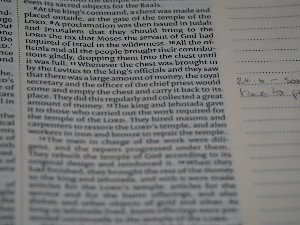Carole M. Cusack
Towards a General Theory of Conversion
Introduction
Towards a general theory of conversion. Explore Christian conversion from historical, sociological, personal, and political perspectives. Develop a general theory understanding its diverse facets and impact.
Abstract
The phenomenon of conversion to Christianity may be approached from many differing viewpoints: as history of missions, as a sociological process, as a personal journey from unbelief to faith, and as an aspect of political and territorial expansion which advanced the power of certain hegemonic cultures throughout the last two thousand years.
Review
The title, "Towards a General Theory of Conversion," sets an ambitious and compelling agenda, signaling a significant attempt to synthesize diverse understandings of a profound human and historical phenomenon. The abstract immediately reinforces this breadth, effectively outlining a multi-faceted approach to conversion to Christianity. By identifying viewpoints ranging from missionary history and sociological processes to deeply personal journeys and the often-overlooked dimension of political and territorial expansion, the proposed work demonstrates a clear intent to move beyond monodisciplinary analyses, aiming for a more integrated and comprehensive understanding. A significant strength lies in the abstract's commitment to this multi-perspectival lens. The explicit inclusion of conversion as an aspect of political and territorial expansion, advancing hegemonic cultures over two millennia, is particularly commendable. This critical perspective promises to delve into the power dynamics and geopolitical implications inherent in religious change, thereby enriching the discourse beyond purely theological, psychological, or localized historical interpretations. This comprehensive framing suggests a robust engagement with the topic's complexities, offering the potential for a richly nuanced and historically grounded analysis. However, while the proposed scope is commendably broad, the abstract leaves several critical questions unanswered regarding the actual development of a "general theory." Specifically, it does not articulate *how* these diverse viewpoints will be integrated or what specific theoretical framework will be employed to synthesize them into a coherent, generalizable model. The challenge lies in demonstrating the conceptual mechanisms that will unify these disparate perspectives, moving beyond simply listing them. Further clarification is needed on the methodology that will bridge these areas and whether the "general theory," despite the abstract's focus on Christianity, aims for broader applicability across different religious and cultural contexts or uses Christianity as a foundational case study for theoretical extrapolation.
Full Text
You need to be logged in to view the full text and Download file of this article - Towards a General Theory of Conversion from Sydney Studies in Society and Culture .
Login to View Full Text And DownloadComments
You need to be logged in to post a comment.
Top Blogs by Rating
The Uncomfortable Truth: Why G...
By Sciaria
Beyond the Charts: Unlocking S...
By Sciaria
The Collective Gasp: Why Live...
By Sciaria
Favorite Blog
Electro-Pulse: Unveiling the U...
By Sciaria
The Uncomfortable Truth: Why G...
By Sciaria
Beyond the Stereotype: Unpacki...
By Sciaria




